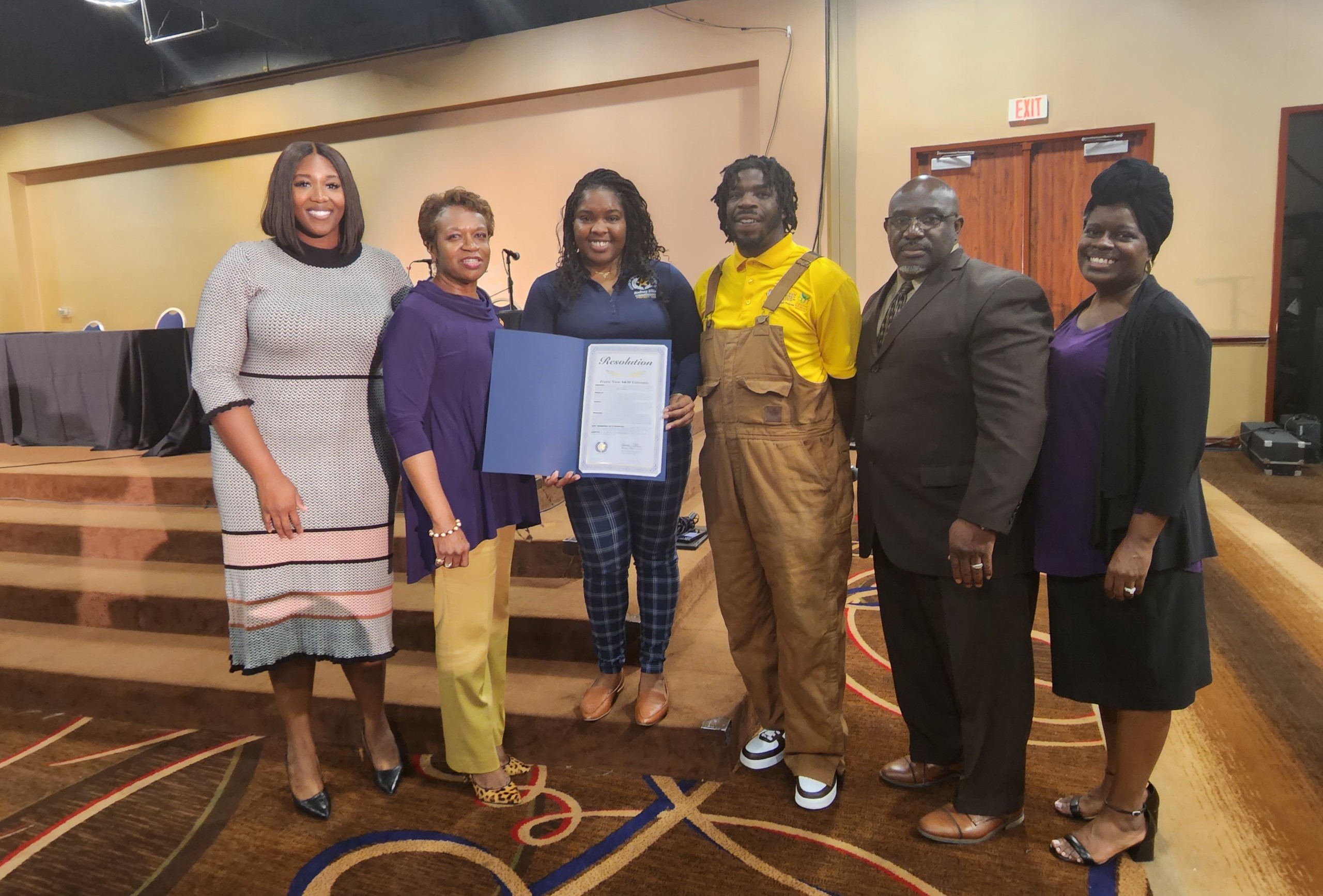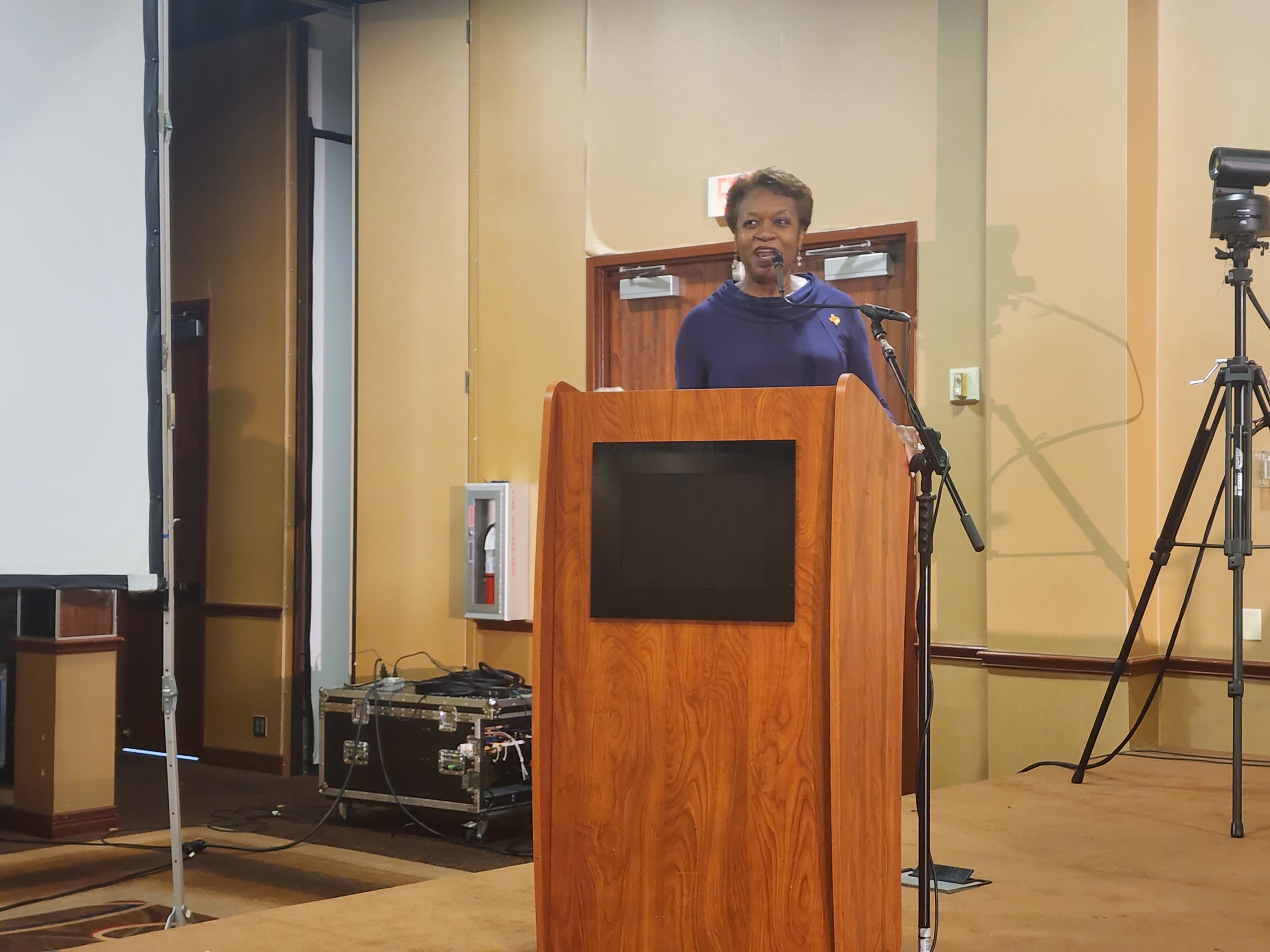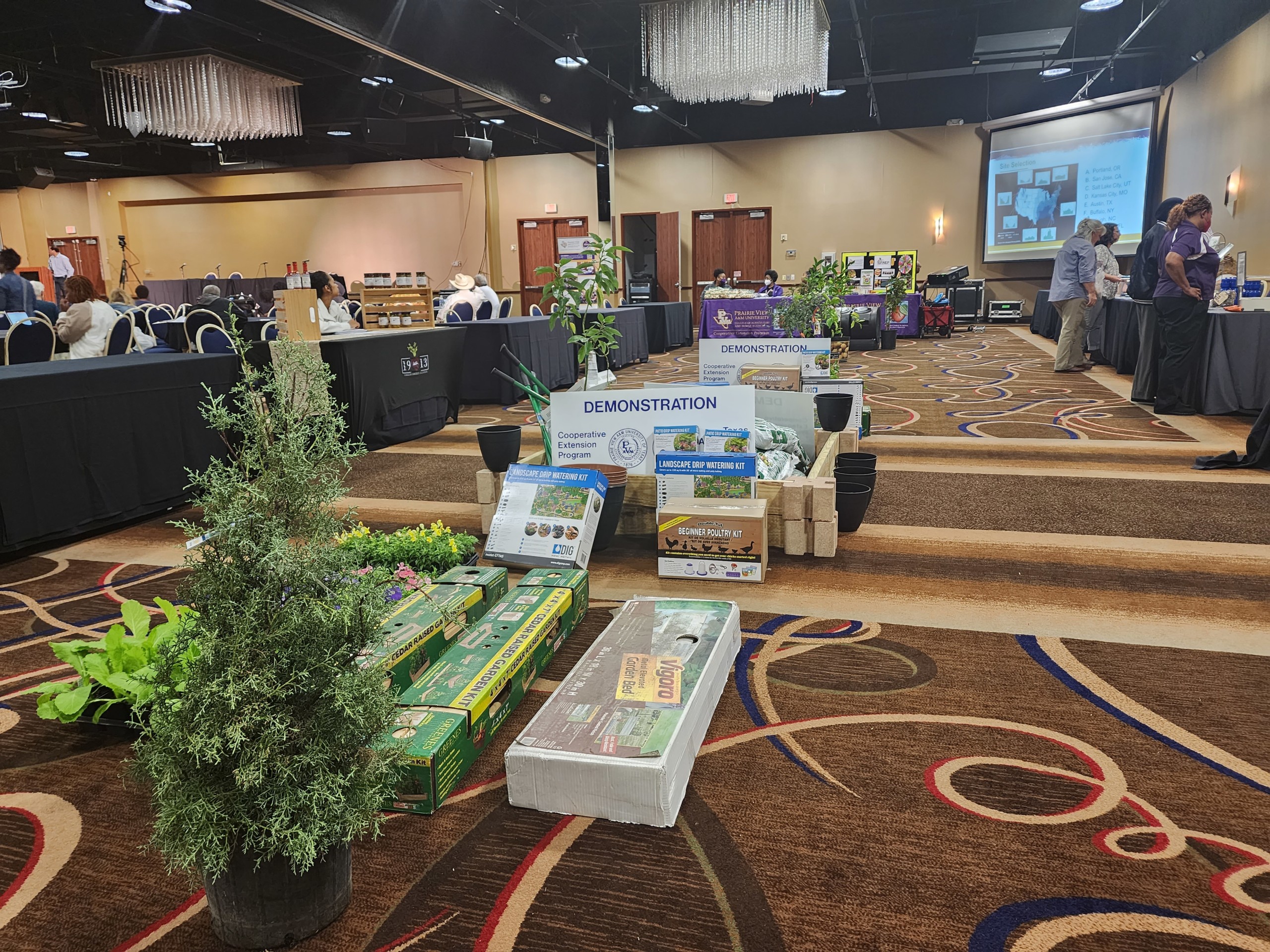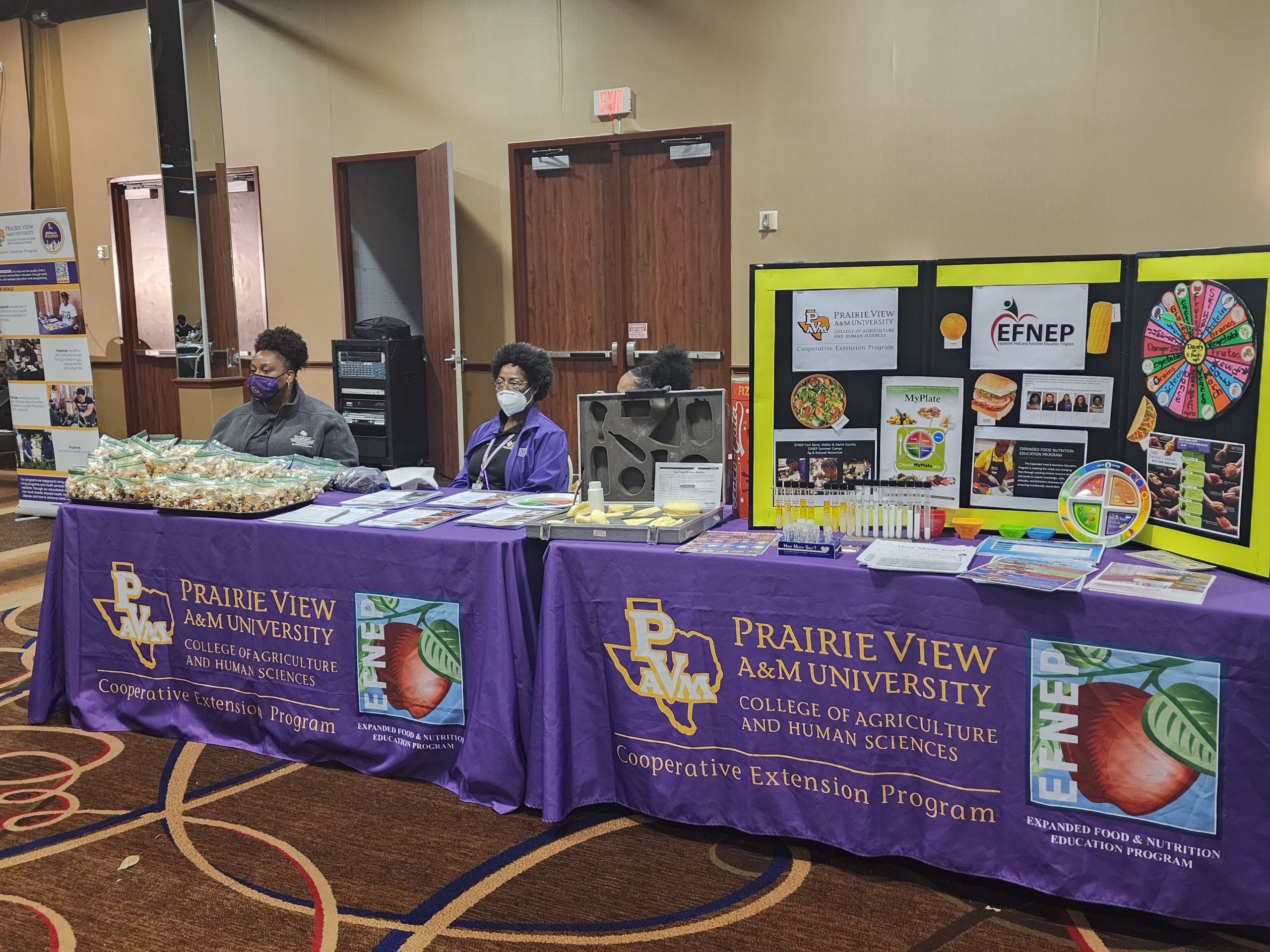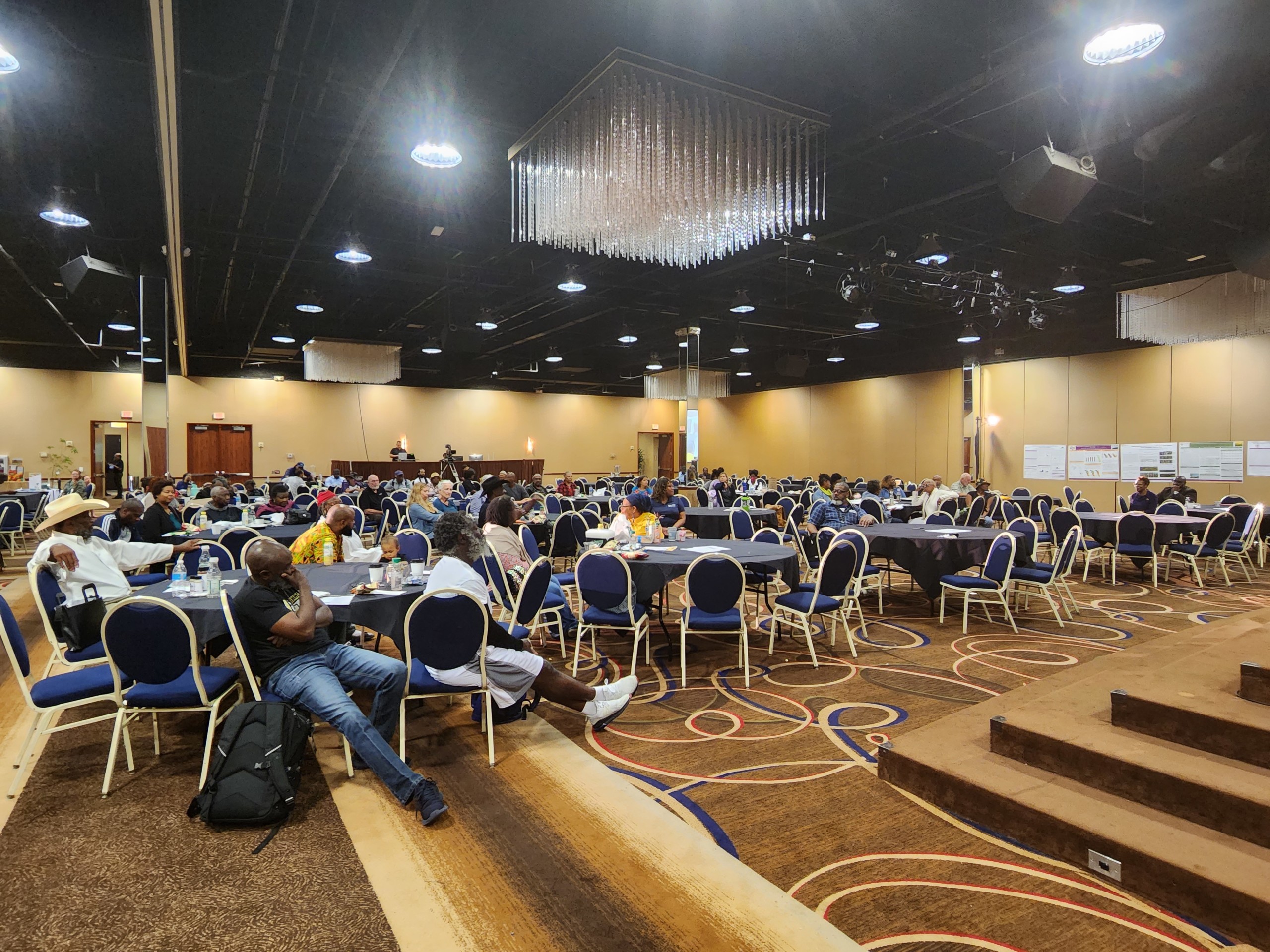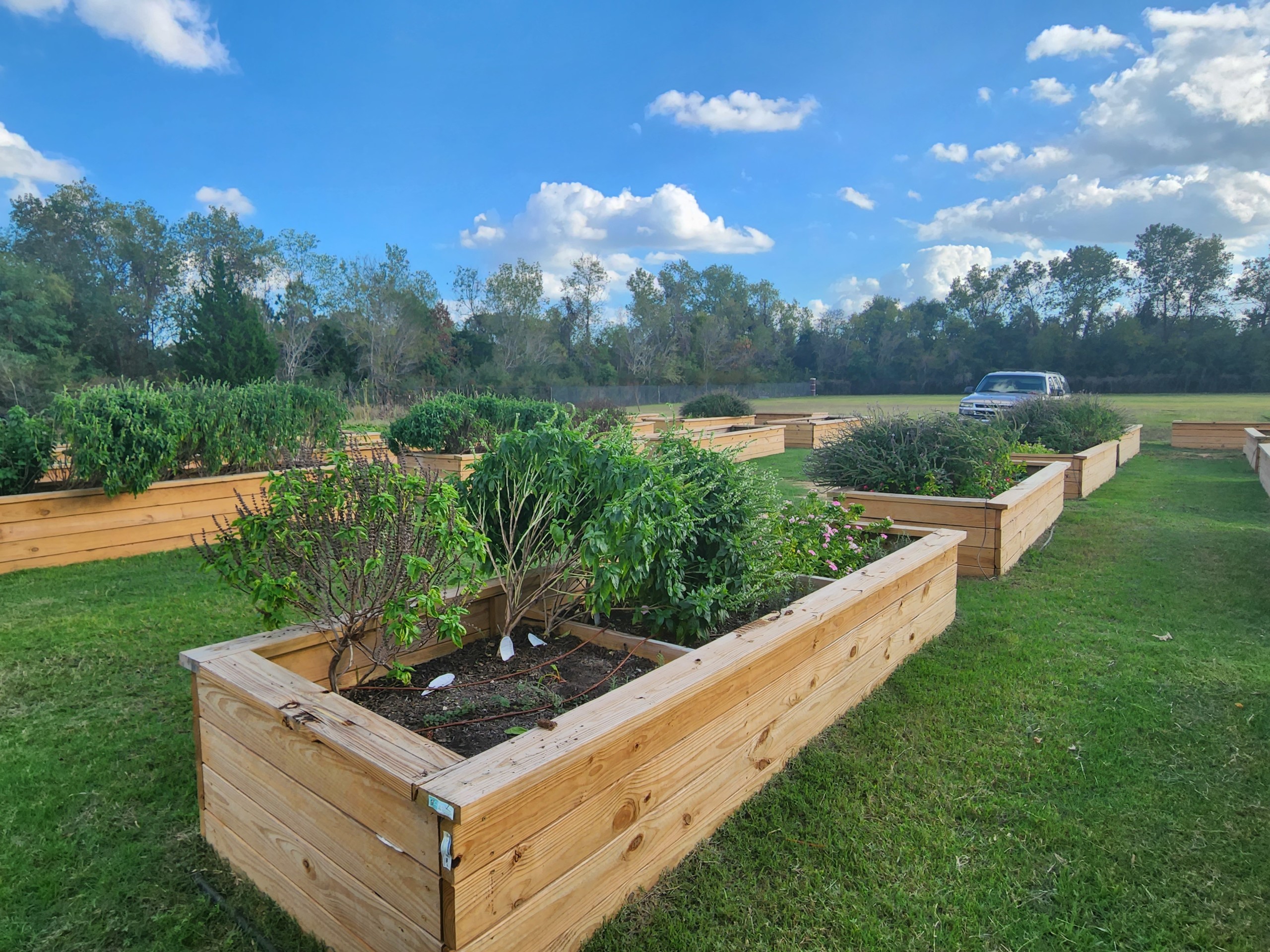HOUSTON, TX – Underserved farmers and producers need support now more than ever. This is why Prairie View A&M University has constantly made efforts to support this vital community. Thanks to a multi-year grant, the College of Agriculture and Human Sciences Cooperative Extension Program Agriculture and Natural Resources (CEP AgNR) unit held its first-ever Urban Agriculture Convention, a gathering of experts in the fields of agriculture, climate, clean eating, conservation, production equity, and more. The convention focused on providing a communication channel between small urban farmers and the federal resources available to them to grow their productions.
Led by CEP AgNR Extension Specialist, Jeremy Peaches, the day began with remarks from CEP Executive Associate Director Carolyn Williams, Ph.D., discussing the vitality of the extension department, and how its functions help lead the way for a healthier community from childhood to adulthood. The department remains steadfast in its mission to partner with agencies to provide all the aid and resources to cultivate a sustainable future for all.
“We are about working with others to make a better life,” Williams said. “We have a lot of work to do, but we can do so much better when we do it together.”
Following the opening greetings, we heard from a couple of the United States Department of Agriculture representatives and from Clarence Bunch, Ph.D., CEP AgNR Program Leader who extolled the history and importance of urban agriculture and how its existence powers the communities PVAMU serves. In the same vein, we also heard from Justin Duncan, a sustainable agriculture expert for the National Center for Appropriate Technology, who also explained how his office can help small farmers get the help they need to sustain their operations. The USDA’s Farm Service Agency and the Natural Resources Conservation Service were on hand to provide necessary information to underserved farmers.
“Traditionally, urban producers have not always thought about FSA or USDA at all in being relevant to their operations, but with urban agriculture continuously growing, the department is working to make sure we are addressing the needs of urban producers,” FSA’s Texas State Outreach Coordinator Joshua Coleman said. “The producers can take advantage of existing programs to see what’s available to grow their operations so that way they’re able to sustain their own neighbors and provide that access to safe and healthy foods that people love and enjoy.”
Guests were also treated to an academic study on climate change and its alarming effects, from PVAMU CAHS Associate Professor Ripendra Awal. His lecture focused on how the climate has been warming thanks to the increased use of greenhouse gases and how this has changed the way we farm. Robert Harding, a revolutionary leader in Texas for sustainable farming technology, also presented the need of utilizing adaptable technology to withstand all climates and industry changes. Harding was brought in to teach schools across the state of Texas about aquaponic systems, a successful tool that allows people to grow plants organically on their own. Harding believes that the ability to feed oneself without relying on help is the key to liberty.
“We used to scavenge for our food, but agriculture gave us the gift of time,” Harding explained. “Because now we can just grow our crops and wait for them to harvest all in one place. We’ve lost the ability to do agriculture on an individual level, but that freed us once so are we free now? The only food security there is, there ever has been and there ever will be is when you grow your food on your property and have access to it any time you want.”
While attendees ate lunch CEP Program Specialist Joyce Osborne hosted a healthy food demonstration to offer different alternatives to ultra-processed, fatty and salty foods so communities can be empowered to make better choices.
The end of the convention was focused on the future of agriculture; engaging youth to lean into their green thumb to continue the college’s mission of empowering generations to maintain health through agriculture. There are many challenges for urban farmers, namely access to financial resources and successful sustainability methods, but conventions like these are meant to support current and future leaders in this space. Terrance Omar, a graphic designer living in Houston has taken up gardening again and says the information encouraged his new path.
“I’m very interested in urban agriculture and what I can do to get more youth involved and tell stories of what’s going on in black urban agriculture,” Omar said. “Today I was able to network and gain more resources for my path. It solidified that I am called to do this work.”
Peaches has worked in this capacity since he was a student worker in the college, and his ability to spread knowledge about agriculture has turned into a passionate endeavor.
“Jeremy works really hard,” Bunch said. “I really appreciate the work that he does I know that his passion is really there. He wants to change what we do and how we engage with food.”
Peaches said the informal nature of the convention was purposeful, in order to facilitate a relaxed space for the farmers to ask questions.
“This was really conversational and engaging,” Peaches said. “We were able to have a conversation about solutions rather than the problems. It got farmers together to understand the agriculture policies and programs available to them.” According to Peaches, PVAMU has given between $9,000 to $10,000 in aid to farmers for supplies to start their operations.
Peaches plans to hold this convention again next year and provide even more funding to the producers. Peaches and the convention committee were also presented with a resolution from Harris County Precinct One, applauding the school’s devotion to the community and urban farmers.
Pascale Mondesir
Communication Specialist
pamondesir@pvamu.edu

